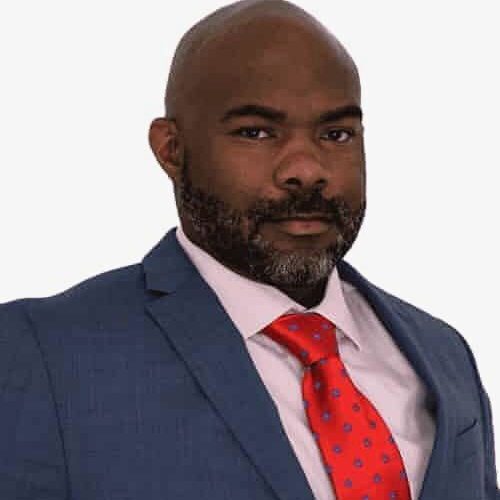To find individual-focused relationship therapy locally, start by clarifying your personal growth goals and relationship concerns through honest self-reflection. Next, research qualified therapists in your area using reputable directories, verifying their credentials and experience with individual relationship work. Ultimately, schedule consultation calls with your top choices to evaluate their communication style and therapeutic approach. Understanding these key steps will help you make the most informed decision for your relationship expedition.
Assessing Your Relationship Therapy Needs and Goals

Three key elements form the foundation of successful relationship therapy: honest self-reflection, clear goal-setting, and commitment to the process. Before seeking therapy, you’ll need to evaluate your relationship’s current state and identify specific areas for improvement.
Start by examining your attachment style analysis and partner communication dynamics through self-assessment. Individual sessions with a therapist can provide deeper insights into your personal background and perspectives. Consider how you handle conflicts, express emotions, and respond to your partner’s needs. Understanding how your interactions may be influenced by attachment insecurity cues can provide valuable insight into relationship patterns. Cultivating self-compassion during this process can help you maintain emotional stability while examining difficult relationship dynamics. Pay attention to recurring patterns in your interactions, including non-verbal cues and defensive behaviors that may surface during disagreements.
Define measurable goals for your therapy experience, such as reducing conflict frequency or improving emotional intimacy. You’ll also want to assess your willingness to receive feedback and make changes. Remember that successful therapy outcomes depend on your openness to exploring both personal growth and relationship dynamics.
Researching Local Therapists and Verifying Credentials
After identifying your relationship therapy goals, finding a qualified therapist who aligns with your needs becomes the next key step. Start by reviewing online therapist profiles on reputable directories like Psychology Today or GoodTherapy, focusing on professionals with verified credentials in relationship therapy. Look for state-specific licenses, specialized certifications, and advanced degrees from accredited institutions. Effective therapists help clients develop self-awareness skills that lead to healthier relationships.
When evaluating potential therapists, examine their client satisfaction metrics through reviews and testimonials. Pay attention to feedback that specifically mentions improvements in communication and emotional regulation. Most therapists offer 45-60 minute sessions as standard practice for individual relationship counseling. Consider that many qualified professionals are part of a worldwide community of over 8,000 EFT therapists who regularly access cutting-edge research and training. Verify their professional affiliations with organizations like ICEEFT, and confirm they’re transparent about their therapeutic approaches, session formats, and payment options. Don’t hesitate to cross-reference their credentials through state licensing boards and check for any disciplinary actions or unresolved complaints.
Making Initial Contact and Evaluating Therapeutic Fit

Once you’ve identified potential therapists, making initial contact marks a crucial step in finding your ideal therapeutic match. Most therapists offer multiple ways to connect, from online contact forms to consultation calls, allowing you to begin your initial session preparation thoughtfully. Your openness to voicing concerns or doubts during this early stage helps establish a foundation for successful therapy. Therapists may utilize case management approaches to help optimize your self-care capabilities and coordinate needed services.
The initial phone consultation typically includes general relationship questions to help match you with the most suitable counselor. During your search for the right therapeutic fit, focus on these key evaluation points:
- Review the therapist’s communication style during consultation calls to guarantee it resonates with your needs
- Complete pre-session questionnaires thoroughly to help identify specific relationship concerns
- Discuss therapeutic approaches and verify they align with your goals
- Establish clear expectations about ongoing session feedback and adjustment possibilities
Frequently Asked Questions
How Long Should I Continue Therapy if I Don’t See Immediate Changes?
Avoid abandoning therapy too soon research demonstrates that significant transformation frequently necessitates perseverance and sustained dedication. You’ll probably witness gradual advancement rather than dramatic immediate improvements. The majority of individuals require at least 3-6 months to observe noticeable changes, and some advantages emerge progressively over 12 months or more. Remain engaged with the process, communicate transparently with your therapist about your concerns, and bear in mind that obstacles are a typical aspect of growth.
Can I Switch Therapists if I’m Not Comfortable With My Current One?
Yes, you can and should switch therapists if you’re not feeling comfortable. The therapeutic relationship is imperative for your progress, and it’s completely normal to investigate new therapists until you find the right fit. Before switching, try to discuss compatibility concerns with your current therapist; they might adjust their approach or help facilitate a shift. Remember, your well-being is the priority, and finding a therapist you trust and connect with is essential for effective therapy.
What Happens if My Partner Refuses to Support My Decision for Therapy?
If your partner doesn’t support your decision to pursue therapy, you can still take steps to prioritize your mental health. Start by having an open conversation about your reasons for seeking therapy and listen to their concerns with empathy. While compromising perspectives are crucial, bear in mind that your personal growth matters. You can proceed with individual therapy, which may actually benefit your relationship indirectly through your own development and improved communication skills.
Should I Tell My Family Members That I’m Attending Relationship Therapy?
Your decision to share information about attending relationship therapy should align with your personal privacy concerns and family expectations. While disclosing can foster support and understanding, you’re not obligated to tell family members. Consider how sharing might impact your therapeutic expedition and family dynamics. If you choose to tell them, set clear boundaries about what details you’re comfortable discussing. Trust your instincts and discuss this decision with your therapist.
Will My Therapist Share Information With My Partner Without My Consent?
No, your therapist won’t share your information with your partner without your explicit written consent. Therapist confidentiality policies are strictly regulated by law and professional ethics. The only exceptions are if you present an immediate danger to yourself or others, or in cases of abuse that require mandatory reporting. You’re in control of maintaining privacy during therapy, and you can trust that your personal disclosures will remain confidential unless you choose to share them.












